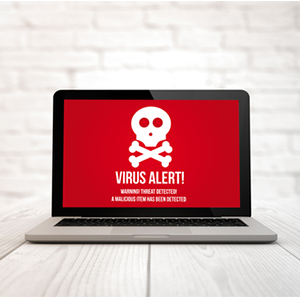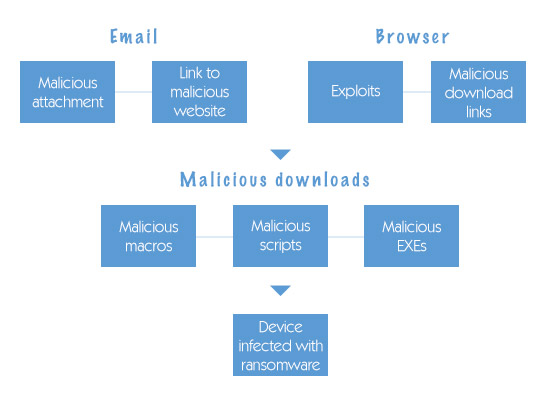Scan File For Virus On Your System Frequently
You may have experienced infection by a computer virus at one point or another. And most probably, the first thing you did was to scan file for virus and to immediately clean your computer. That was possible if you have installed an updated antivirus, but if you have no antivirus on your system, you may have utilized an online antivirus scanner to scan computers.
you have installed an updated antivirus, but if you have no antivirus on your system, you may have utilized an online antivirus scanner to scan computers.
Although there are plenty of online scanners over the internet, you must be very careful in using this software. It may lead you to actually downloading more malware or virus on your system rather than removing it.
You must regularly scan file for virus to protect your system from these threats and maintain a clean computer.
Scan File For Virus On Your: Symptoms Of Virus Infection
If you will notice that the computer is experiencing a slower internet and reduced processing power when the user hasn’t scan file for virus or scan computers in the network. Although doesn’t always happen and blame to the virus, if this occurs in a sudden situation and previously, you are not experiencing this, then it is possible that the computer has contracted a virus.
You will notice that the computer might behave erratically if the user didn’t scan file for virus or scan computers in the network. Computer viruses are capable of doing strange things to a computer system. If the computer is not properly responding according to the commands of the user, then it is possible that the computer is infected with a virus.
The computer that is infected with a virus will just suddenly freeze and crash frequently. This happens if the victim did not scan file for virus or scan computers in the network. Every computer viruses can damage your hard drive, they can cause your computer to fail. If your computer was able to survive the crash, it would be better to run an updated antivirus.
When the computer is infected with a virus, you might notice that the computer might show error messages. It happens if the user did not scan file for virus or scan computers in the network. When the computer is infected with a computer virus, it may show some annoying pop-up messages that warn about some missing file systems or application files.
You will also notice that the computer might display annoying advertisements. It usually happens when the user does not scan file for virus or scan computers in the network. It is very common to see such advertisements when you are browsing the internet, but if you see these ads when you are not actively browsing, then this could be a sign of a virus infection.
If the computer is infected with a virus, you will notice that the computer might send malicious emails. This thing happens when the user does not scan file for virus or scan computers in the network. One of the main sources viruses is through email because viruses can spread itself through email.
When the system is infected with a computer virus, you will notice that the computer might delete or add files on your hard drive. This happens if the user hasn’t scan file for virus or scan computers in the network. You must keep track of the size of the hard drive because a virus may install multiple copies of itself or delete files unexpectedly.
Scan File For Virus On Your: Preventing Virus Infection
It is important to be cautious in every activity you make in using your computer to avoid being infected by viruses and malware. Take these following steps to prevent virus infection on your system.
Keep your computer system updated. It is important that you do a scan file for virus and scan computers, but you must not forget to update your operating system. You need to set up an automated updated of the OS and the other applications running on your computer. This includes all the Adobe, Java, and other commonly used applications.
Avoid from using old Internet Explorer. Never forget to scan a file for virus and scan computers but you must avoid using Internet Explorer, using this software will only expose your operating system to vulnerabilities. You may use the Google Chrome, Mozilla Firefox, or Opera as your alternative option.
Always have a computer backup. The third important step is to have a backup copy of all your files on the computer. This must be done alongside of performing a scan file for virus and scan computers in the network. This will save just in case that your system crashes because of viruses and malware infections.
Never visit suspicious websites. Aside from doing a scan file for virus and scan computers, you should be careful in visiting sites on the internet. Currently, there are many websites that are infected by a virus or malware and it is hard to identify these websites. In this case, you will rely on your antivirus and antimalware software.
Always scan email attachments before opening. You need to always check all the email attachments prior from opening the data and make sure that you scan a file for virus and scan computers in your network. You need to do this because there are some people that send viruses and malware to others through the use of email.
Use anti-malware software. You should also have a malware scanner that is slightly different from antivirus alongside if you are doing a scan file for virus and scan computers in the network. You will not have any problem in using this software since it mostly compatible with the antivirus programs.
Proper use of antivirus. The last important step is to have a robust antivirus software like the Xcitium Antivirus. Antivirus applications are only effective when they have up-to-date definitions. This is necessary if you want to do a scan file for virus and scan computers in the network. For this reason, be sure your anti-virus program updates automatically. Use only the trusted brands like the Xcitium Antivirus. Download a free copy today!
Get Free Trial Now Free Forensic Analysis
Related Resources


